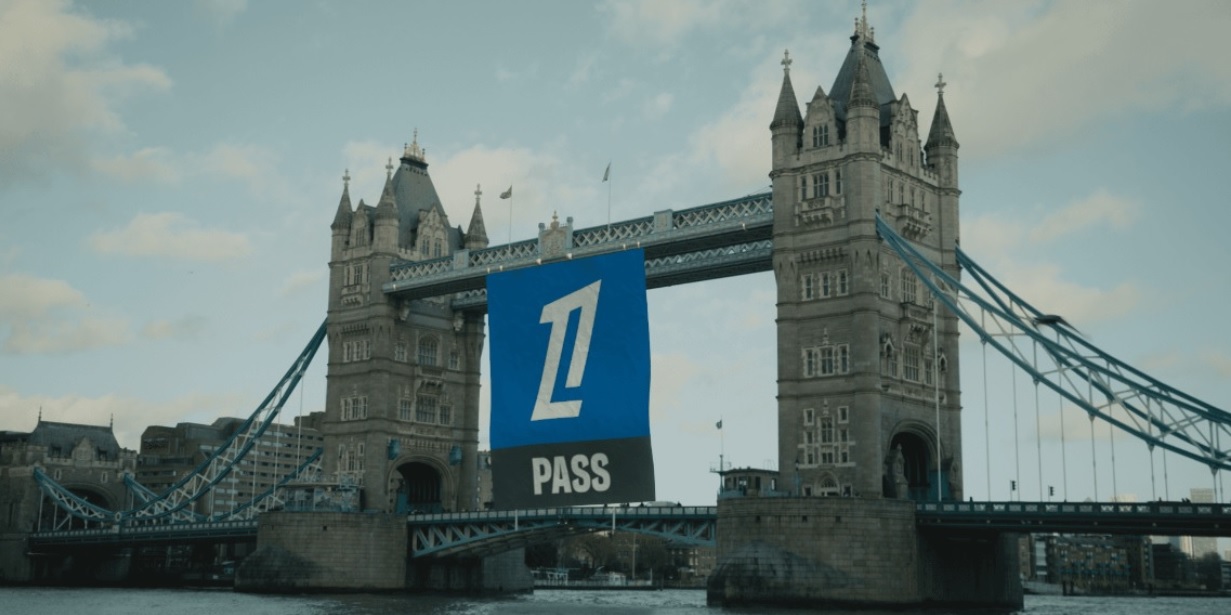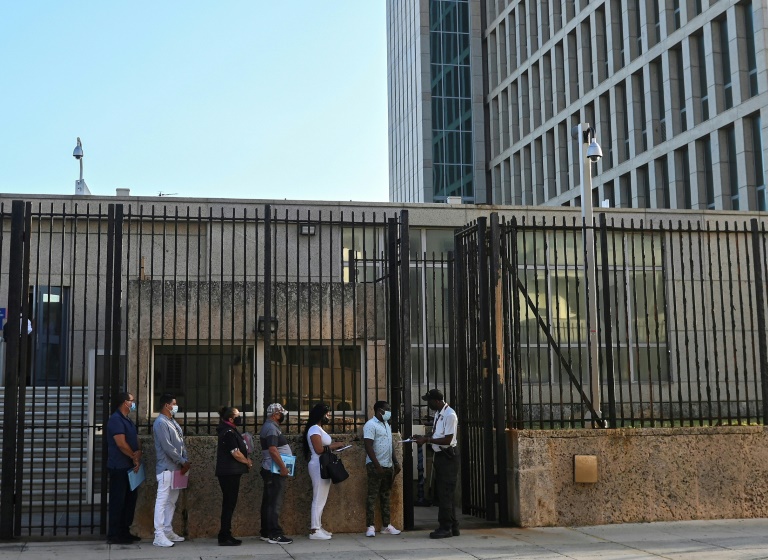Order at the US Embassy in Havana on May 3, 2022 – AFP / Archives
The United States announced Monday (16) that it would ease the measures that Cuba has classified as “a definite step towards the right”, including the immigration procedures, money transfers and flights imposed on Cuba during Donald Trump’s presidency.
Washington’s announcement comes as a result of a review of the policy on Havana promised by President Joe Biden, who visited the White House in January 2021, but began to take shape after the historic protests that rocked Cuba in July last year.
“Through these measures, we want to support Cuba’s aspirations for independence and greater economic opportunity so that they can lead successful lives at home,” State Department spokeswoman Nate Price said in a statement.
A senior US official who refused to name the announcement as a coincidence said: “The calls have not come in yet, following Mexico’s threats to boycott the next US summit and condemnation of Cuba’s exclusion from production. Since sent, no decision has been made on this. These policy measures have been in place for a long time and are considered to be completely isolated from the conversation about who participates in the summit and who does not.
Biden management has announced the resumption of the suspended CFRP program from 2017, which allows U.S. citizens or residents to meet Cuban family members in the United States through regular migration channels. It also pointed out that it would increase the processing capacity of visa applications in Havana.
In addition, he said he would remove the current limit of US $ 1,000 per family remittance per sender-recipient pair and authorize donations, or non-family remittances, to support “independent Cuban entrepreneurs”. .
However, the State Department stated that these financial flows should not “enrich” individuals or organizations that violate human rights.
Biden’s management will increase the number of flights between the United States and the island, recognizing service to cities other than Havana. This will allow specific group travel, which is currently prohibited.
However, he made it clear that personal trips would not be re-enacted.
“The administration’s (Biden) policy towards Cuba is focused on supporting the Cuban people, including their human rights and their political and economic interests,” Price said.
“We continue to call on the Cuban government to release political prisoners immediately, to respect the fundamental freedoms of the Cuban people, and to allow the Cuban people to decide their own future,” he added.
– ‘defined step’ –
Cuba acknowledged the progress of the operation, but insisted that it would not “change the embargo” that had been in place since 1962.
“The announcement by the US government is a definite step in the right direction,” but the Cuban Secretary of State said on Twitter that “this is a failure, a change, not the objectives or key tools of US policy toward Cuba.” Minister of Foreign Affairs, Bruno Rodriguez.
“This decision does not change the siege. The fraudulent inclusion of Trump in the list of countries that support terrorism or Trump’s pressure to impose maximum pressure has not yet affected the Cuban people,” Rodriguez said.
Trump modified the opening of the island, promoted by his predecessor Democrat Barack Obama (2009-2017), and strengthened the US-imposed embargo on Cuba to force regime change.
Biden, Obama’s former vice president, surprised many by sticking mostly to Trump’s decisions.
“Today’s announcement risks sending the wrong message to the wrong people at the wrong time and for the wrong reasons,” said Bob Menendez, an influential Democrat senator who chaired the Senate Foreign Relations Committee.
Menendez warned that the government of Miguel Diaz-Colonel was “continuing to persecute countless Cubans” in order to take part in the July protests, and denied that further travel to Cuba would “create democracy” on the island under one-party communist rule. From the 1959 revolution led by Fidel Castro.

“Internet addiction in terminals. Award-winning beer expert. Travel expert. General analyst.”






More Stories
Cleaners at prestigious UK girls’ school win pay and conditions dispute
Soybeans fall in Chicago, with expectations of a good harvest in the US
Support planned for UK households struggling with winter energy bills